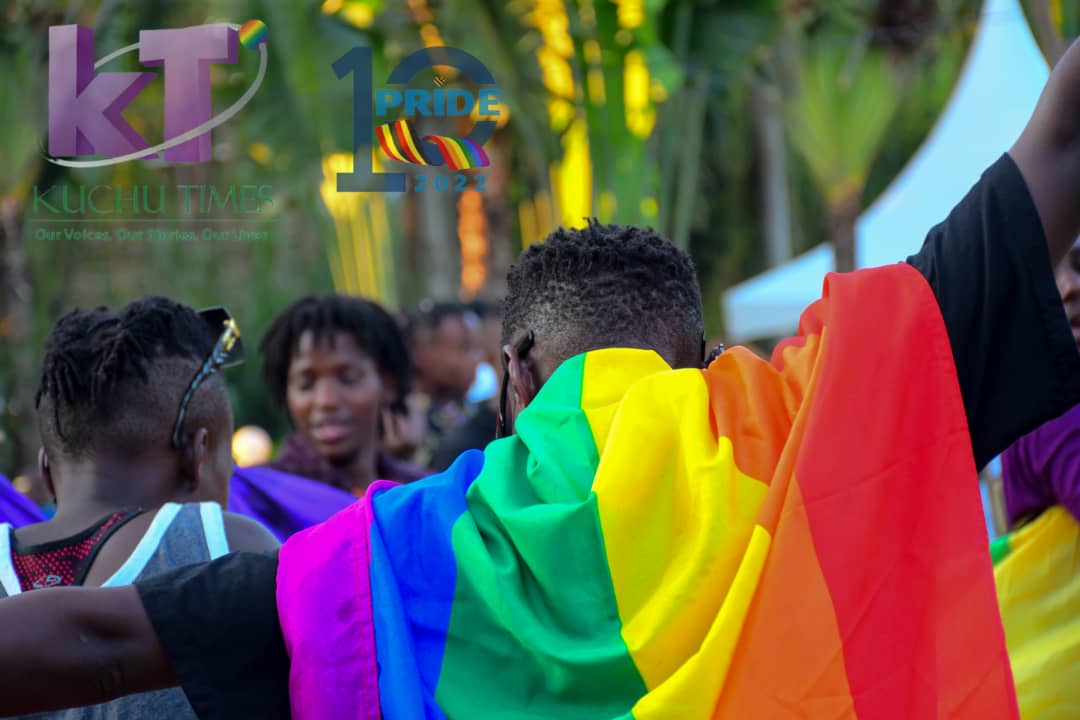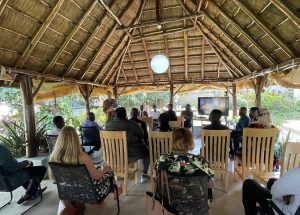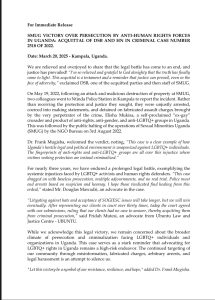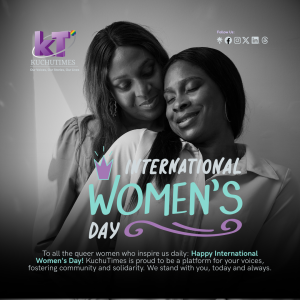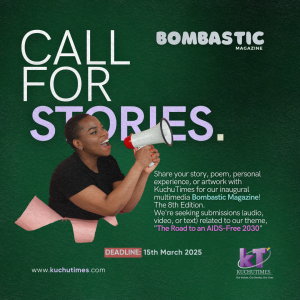In the spirit of celebrating Pride in Uganda, the Embassy of Sweden in Uganda has today, 4th July, 2022 hosted a round table discussion around supporting LGBT+ rights in Uganda and beyond; perspectives from international development actors, academia and rights defenders. This discussion was co-organized by Malmo University (the Data Society Research Center) and Uppsala University (Department of Informatics & Media)
The roundtable aimed at understanding support for LGBT+ human rights defenders in Uganda and other socially conservative societies. “This conversation seeks to problematize past modes of support and discuss the road ahead in Uganda and beyond. LGBT+ financial funding could be available but the discussion seeks to explore other forms of support the LGBT+ community requires,” Jakob Svenssen, the panel moderator explained. One of the panelists mentioned the need for funders to track global politics because usually with bad policies from major countries, one bad law follows another; case in point the current abortion bill passed by the US Supreme Court.
According to data from 2019-2020, global LGBT+ funding has grown by 4% and the grantees increased by 38% with the highest global LGBT+ funder being the Government of Netherlands then Sweden and Canada. Sweden is the leading funder for the sub Saharan region and Uganda is 2nd largest recipient of LGBT+ funding in the world as of data from 2019-2020. This all begs the question is this support reflected in the lives of the LGBT+ persons?
Biggie, the Executive director of Freedom and Roam Uganda and one of the panelists said she was appalled at how high the numbers were in regards to LGBT+ funding. This is because the funds do not trickle down to the LGBT+ grassroots organizations, funders find it apparently safer to fund organizations simply leaning towards LGBT+ work instead of supporting LGBT+ organizations directly. Leticia from Queer Youth Uganda was also shocked by these figures because like Biggy she doesn’t see this translated in LGBT+ organizations themselves and agreed that funding is mostly allocated to LGBT+ leaning organizations than the LGBT+ ones directly.
However, Karis Moses from Defend Defenders actually agreed with the figures. In his opinion, the issue is the ambiguity of the term protection support. There is need to redefine what protection means to the beneficiary; for instance currently most LGBT+ support comes through HIV support but we have come to realize that even though HIV is an issue, it isn’t the biggest challenge faced by LGBT+ persons. Funders questioning the capacity of LGBT+ organizations to handle the funding simply put is them saying LGBT+ organizations struggle with accountability; this goes back to lack of core funding. Projects are implemented by people which people have needs like rent and food. Richard Lusimbo from Uganda Key Populations Consortium noted that even though statistically these numbers are accurate but the funding does not reach the community. “This issue of capacity should stop! Why aren’t we working towards fixing the bottle necks to capacity? We as funders fuel community disempowerment by continuous provision of project based resources without thinking of basics like rent and health insurance yet the main stream organizations being given this support have all these things.” Jotham Mubangizi from UNAIDS called for rethink around project areas, issues of communication, mapping and alignment. Going forward, organizations should plan for issues of economic empowerment in our organizations to deal with economic empowerment while we await core funding.
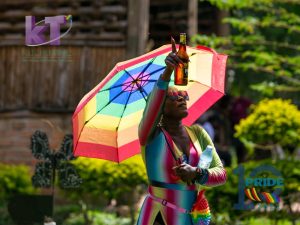
Ever since the Stone Wall riots, Pride has been used globally as a way to not only celebrate queer love/identity but also as a way to advocate for the rights of LGBT+ persons. Isaac Mugisha the Pride Coordinator of Uganda said that as Uganda marked a decade of celebrating Pride, there has been a shift (positively of course)in partners that are willing to come out and support Pride but also more LGBT+ persons have come out to celebrate themselves. For this first time, this Pride Gala had a government representative in the room which saw a shift from the usual commitments made by policy makers without action. “Human rights are universal and all human rights defenders should advocate for LGBT+ rights!”

